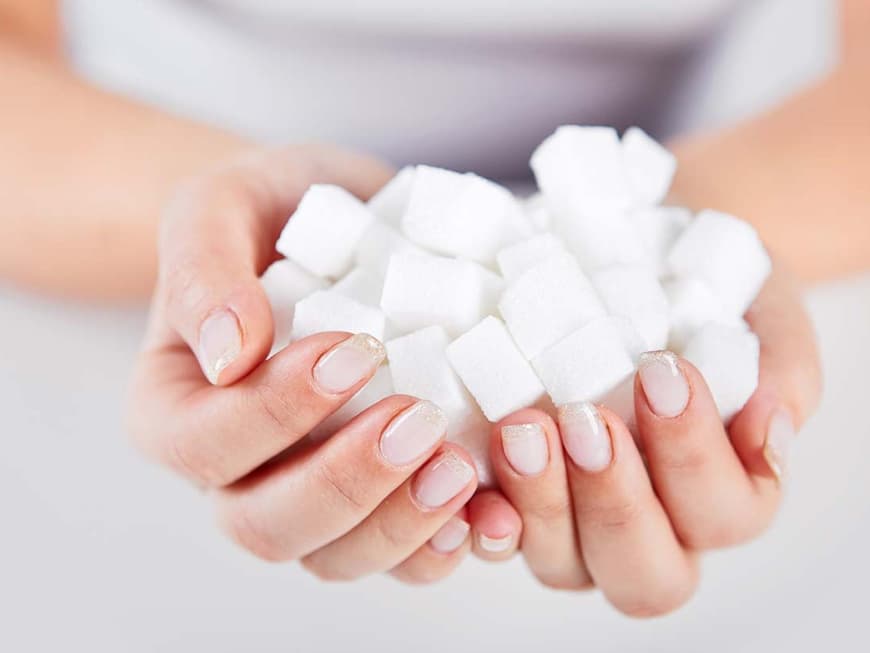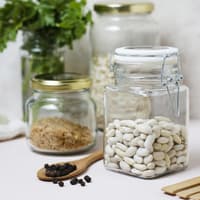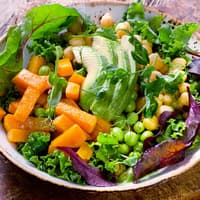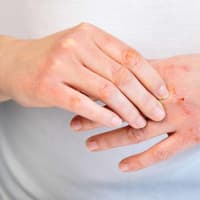It's in our genes, the preference for everything that tastes sweet. The first food that babies are given is sweet breast milk. Stone Age man knew that sweet is non-toxic and rich in energy. But an exception to the diet has become an epidemic that nutritionists around the world are warning about. The WHO recommends no more than 25 g of sugar per day. On average, every German eats 90 to 100 g, with far-reaching consequences for health: arteriosclerosis, dementia and depression are associated with this. Because tumor cells consume a lot of sugar when they multiply, Prof. Lewis Cantley from Harvard Medical School believes it is likely that in some cases, high consumption causes cancer to develop in the first place. It has already been proven that sugary drinks in particular greatly increase the risk of obesity, tooth decay and diabetes. This is why it is so important that we cut sugar out of our diet - not completely, but at least for the most part.
Sugar triggers addiction symptoms, and giving it up leads to withdrawal symptoms
Despite knowing this, we find it difficult to give up sugar. Why? We have an innate preference for sweet. The food industry exploits this. Sweet tastes sell better, which is one reason why almost all ready meals contain sugar. It's cheap and increases sales - it's worth it, and the industry pours more and more of the sweet poison into our food. Anyone who has ever tried to give up sugar knows how difficult it is. Sugar stimulates the same regions of the brain as alcohol and nicotine. And after a short high, the blood sugar level drops quickly and the brain demands a refill. This is why some researchers even speak of an addiction. Researchers are currently investigating what else high sugar consumption does to the brain. One alarming result: it makes schoolchildren stupid and older people forgetful. Politicians are trying to label food with traffic lights - so far they have not been able to prevail against the food lobby. In other countries, people are already more progressive or are getting their way.
Sugar is superfluous. A useless substance that the body doesn't need
Advertising suggests that sugar is a good source of energy. This is wrong. It is nutrient-free and completely useless for the body, so we could easily do without sugar - actually. Carbohydrates from starch (potatoes, bread, pasta, etc.) are completely sufficient for energy production. Incidentally, fructose in juices and as a supposedly healthy sugar additive is particularly dangerous. In contrast to whole fruit, where the absorption of fructose is delayed by fiber from the fibers, pure fructose damages the liver particularly quickly. Does this mean we should never snack again? No, we should just be much more aware. Because it's the dose that makes the poison.
Hidden sugar: what exactly does that mean?
Because it is so extremely cheap, the industry mixes as much sugar as possible into our food - and simply calls it something else. We know that ketchup contains so much sugar that it could almost be called tomato jam. But take a closer look at pizza, delicatessen salads, packet soups, sausage and red cabbage: there is sugar in almost all industrially processed products. That's why it's so difficult to avoid sugar altogether. It is used as a filling agent, flavor carrier, binding agent or preservative. It hides behind these names: on packaging, the ingredients appear in the order of their proportion. A trick to make sugar slide further down the list: it is divided into individual ingredients and is then called fructose, maltose, glucose, lactose, etc. Whey powder, fructose syrup, dextrin, maltodextrin, caramel syrup, agave syrup, fruit sweeteners, whey products, barley malt, malt extract and inulin are also simply sugar.
Sugar detox: what does it do for me?
The sugar detox involves avoiding all foods with a sugar content of more than 5 g per 100 g for a certain period of time (at least three weeks). The only exception is one portion of fruit per day. This means checking ingredient lists carefully, cooking a lot yourself and, above all, staying strong and observing: How strong is the desire to snack? What side effects, such as headaches and irritability, does the body react to the withdrawal? The transformation begins on the third day. At first you will be able to concentrate and sleep better. After a week, you will have more energy and your taste buds will become more sensitive. Many things taste more intense, without any additional sweetness. The organs regenerate - bye-bye dull complexion and digestive problems! And you can also say goodbye to a few extra kilos.
How can we protect our children?
Colorful cornflakes for breakfast, strawberry milk at school, a yogurt during the first break and you've already reached the critical amount for sugar. The fact that products advertised for children are often even higher in sugar than foods without colorful animals and princesses on the packaging is irresponsible. Why is this the case? Children love sweets and have a higher threshold for stimulation; they only taste sweetness in much higher concentrations than adults. And because children eat what they love in the first phase of life for the rest of their lives, many parents forbid sweets.
However, it would be much more important to pay attention to the entire diet: A study by the Max Planck Institute in Mannheim found that 74 percent of parents estimate the sugar content of foods to be far too low. As many as 92 percent were wrong about fruit yoghurt and 84 percent about orange juice. The result cannot be overlooked: More than one in seven children is too fat. Experts recommend banning juices and soft drinks and letting children cook and do a lot of the cooking themselves, as this makes healthy food taste much better. A moderate approach to sugar and more avoidance of it can be learned through play in this way - children just need to be offered alternatives.
3 questions for the nutrition doctor
Dr. Matthias Riedl (55) is an author, specialist in internal medicine and diabetologist and is known from the TV show "The Nutrition Docs"
How do you assess the sweet danger?
"It has been proven that high sugar consumption is the biggest health burden in all western industrialized nations. People who eat more than 105 g of sugar per day are 2.4 times more likely to die."
Why is fructose not healthier?
"Fruit sugar (fructose) is unfortunately not a way out, because it leads to fatty liver. It is found in agave syrup, raisins and honey."
Are sweeteners a sensible alternative?
"Sweeteners don't provide any calories, but they do reduce sensitivity to sweets. It increases the desire for sweet products. My tip: try aromatic spices or experiment with birch sugar (xylitol/xylitol), which has 40% fewer calories."








